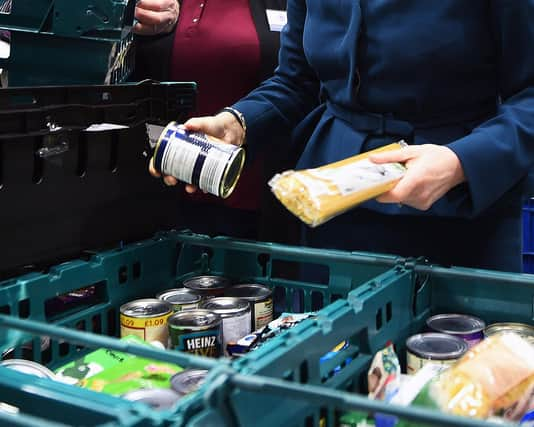Close to 3 million emergency food parcels were distributed by food banks in the Trussell Trust network in the past 12 months — the most parcels ever distributed by the network in a year.
More than one million of these parcels were distributed for children.
Food banks in the Trussell Trust network saw the highest ever levels of need, even more than during the peak of the pandemic, as more people found their incomes did not cover the cost of essentials like heating and food. Between April 2022 and March 2023, the number of people that used a food bank for the first time was 760,000.
December 2022 was the busiest month on record for food banks in the Trussell Trust network, with a food parcel being distributed every 8 seconds.
While the pandemic and cost of living crisis have had a major impact on food bank need, they are not the main cause say the trust.
Rather, they have exposed and exacerbated a longer-term crisis: that of a weakened social security system that is unable to protect people from the most severe forms of hardship, thereby forcing more people to the doors of food banks.
Rising food bank need demonstrates more and more people are going without the essentials – we’re calling on the UK government to enshrine in law the amount needed to cover bills and essential items.
Chief Executive Emma Revie commenting on the report says:
These new statistics are extremely concerning and show that an increasing number of people are left with no option but to turn to charitable, volunteer-run organisations to get by and this is not right. The continued increase in parcel numbers over the last five years indicates that it is ongoing low levels of income and a social security system that isn’t fit for purpose that are forcing more people to access food banks, rather than just the recent cost of living crisis or the COVID-19 pandemic.
Food banks were set up to provide short-term support to people in an emergency, they are not a lasting solution to hunger and poverty, and more than three quarters of the UK population agree with us that they should not need to exist.
The staff and volunteers in our network are working tirelessly to ensure help continues to be available, but the current situation is not one they can solve alone.
For too long people have been going without because social security payments are not based on a real reflection of life’s costs and people are being pushed deeper into hardship as a result. If we are to stop this continued growth and end the need for food banks then the UK government must ensure that the standard allowance of Universal Credit is always enough to cover essential costs.”







